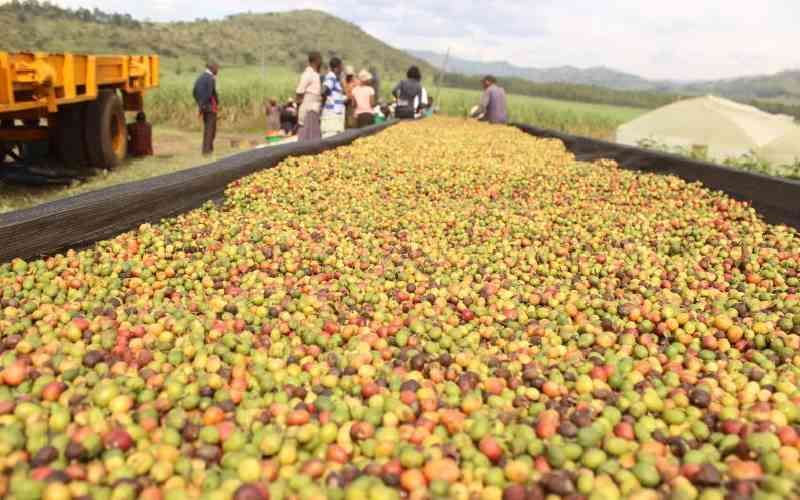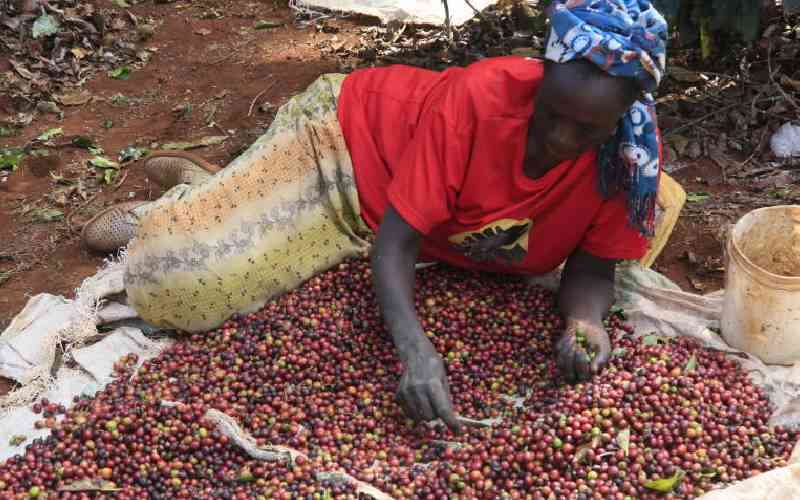Reports that coffee growers have lost over Sh51 billion in nine years should be investigated urgently and the culprits brought to book.
Surely, this won’t turn out to be a difficult task considering that the people behind cartels milking the farmers dry are well-known to the Coffee Board of Kenya.
It is a matter of regret that the shenanigans in the coffee industry have been going on in plain view of the government.
Indeed, former Agriculture Permanent Secretary Romano Kiome supported the audit of the sector, which revealed the losses were systematically accumulated between 2003 and 2012, abetted by a law enacted in 2006 that allowed traders to acquire multiple licences.
This opened the market to unfair practices, where dealers who exported coffee and roasters, were given licences to operate as marketing agents. This law allowed some to make a mockery of the coffee auction system, because they operate at all levels from growing, milling and buying, placing them in an environment where they buy and sell among themselves or their proxies.
Inexplicably, these licences are yet to be cancelled or withdrawn, despite Government revoking the rule that allowed their issuance as far back as October 2007.
A clear testimony that the auction system is tampered with is the high prices fetched by direct sales of coffee.
That means the revocation of these multiple licences is a matter of priority. There should be no excuse to delay taking action when farmers are losing billions of shillings every year.
This would allow the new government to regain the moral ground lost by the previous regime, renown for prevarication on issues where some members of the political and business establishment had interests.
Indeed, this would be a fair test of how serious the new government is in promoting economic equity, without which the majority of the country’s wealth creators will remain stuck in poverty and want.
This is a battle that governors from coffee-growing counties can also take up immediately with the same vigour they have been pushing for higher salaries, allowances and other privileges most of which are meant to drain the public purse while adding no value to the voters who are also taxpayers.
Governors should bring together coffee growers and Saccos in their region to add value to their produce, and export it directly to overseas customers. Individually, the unions may not be strong enough to challenge the financial dominance of the cartels that have been controlling the trade for decades. Conservatively, it is estimated that farmers could more than double their income by adding value to their coffee before its export.
Instead of spending the hard-earned tax-payers’ money on frivolous local and regional trips and on conspicuous consumption, the county governors would be better advised to use the money to look for export markets for their voters’ coffee, to build warehouses and factories and to develop the human capital necessary to turn the sector around.
There is reason to believe that focused county governors would attract additional financing from the private sector and even the national government.
Stay informed. Subscribe to our newsletter
 The Standard Group Plc is a
multi-media organization with investments in media platforms spanning newspaper
print operations, television, radio broadcasting, digital and online services. The
Standard Group is recognized as a leading multi-media house in Kenya with a key
influence in matters of national and international interest.
The Standard Group Plc is a
multi-media organization with investments in media platforms spanning newspaper
print operations, television, radio broadcasting, digital and online services. The
Standard Group is recognized as a leading multi-media house in Kenya with a key
influence in matters of national and international interest.
 The Standard Group Plc is a
multi-media organization with investments in media platforms spanning newspaper
print operations, television, radio broadcasting, digital and online services. The
Standard Group is recognized as a leading multi-media house in Kenya with a key
influence in matters of national and international interest.
The Standard Group Plc is a
multi-media organization with investments in media platforms spanning newspaper
print operations, television, radio broadcasting, digital and online services. The
Standard Group is recognized as a leading multi-media house in Kenya with a key
influence in matters of national and international interest.









